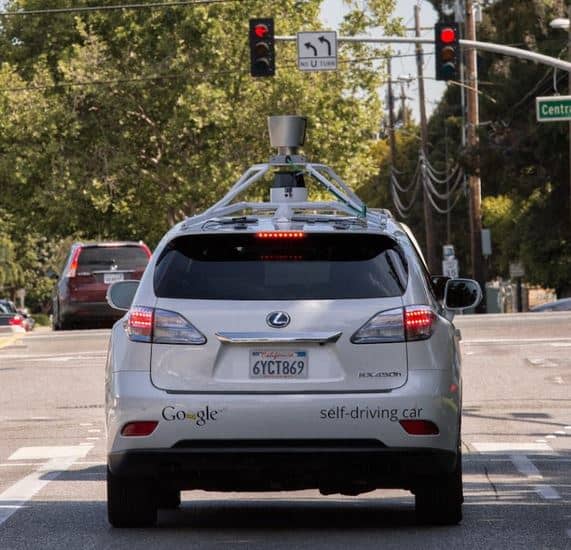 Two self-driving cars almost plowed into each other on Tuesday, a day before the Google LSVs took to the roads of Mountain View, California. Google denies the situation while Delphi representatives have said many things about what happened.
Two self-driving cars almost plowed into each other on Tuesday, a day before the Google LSVs took to the roads of Mountain View, California. Google denies the situation while Delphi representatives have said many things about what happened.
John Absmeier, director of Delphi’s Silicon Valley lab and global business director for automated driving program, was a passenger in an Audi Q5 with Dephi self-driving technology. The Delphi car was going to change lanes when a Google Lexus cut off it, requiring the Delphi AV to stop the lane change. Reuters called the incident a “near miss” in the original article.
Both cars were using similar technology, such as lasers, radar, cameras and computer systems. Both cars did, have a driver behind the wheel in case of an emergency.
Delphi, spokeswoman Kristen Kinley insists it wasn’t a near miss but was an example about how self-driving cars avoid accidents.
“Our car saw the Google car move into the same lane as our car was planning to move into, but upon detecting that the lane was no longer open it decided to terminate the move and wait until it was clear again,” she told CNN.
Delphi later published this statement
“The story was taken completely out of context when describing a type of complex driving scenario that can occur in the real world. Our expert provided an example of a lane change scenario that our car recently experienced which, coincidentally, was with one of the Google cars also on the road at that time. It wasn’t a ‘near miss’ as described in the Reuters story.”
Well it wasn’t a near miss, but the cars were “near” each other.
The real problem is not with self-driving cars dealing with another self-driving car but when people with emotions have to deal with the driving style of the self-driving car. There have been reports that because Google cars takes so long to make a left turn, drivers in Mountain View pass the cars on the right. The self-driving Google cars have been labelled as driving like grandmas, way too cautious and taking longer than humans do.
So far there have been no injuries to humans in collisions from the self-driving cars. However, there will be hell to pay when a human gets injured or worse.
A Boston Consulting Group study found that for those who wouldn’t buy an an autonomous vehicle, the biggest considerations appear to be reliability, cyber security, and uncertainty about AV interactions with other vehicles on the road.
Men and younger people prefer self-driving cars, while women and most people are skeptical.
Daimler, Tesla, Audi and Delphi appear to winning self-driving connected car race in the second quarter of this year.